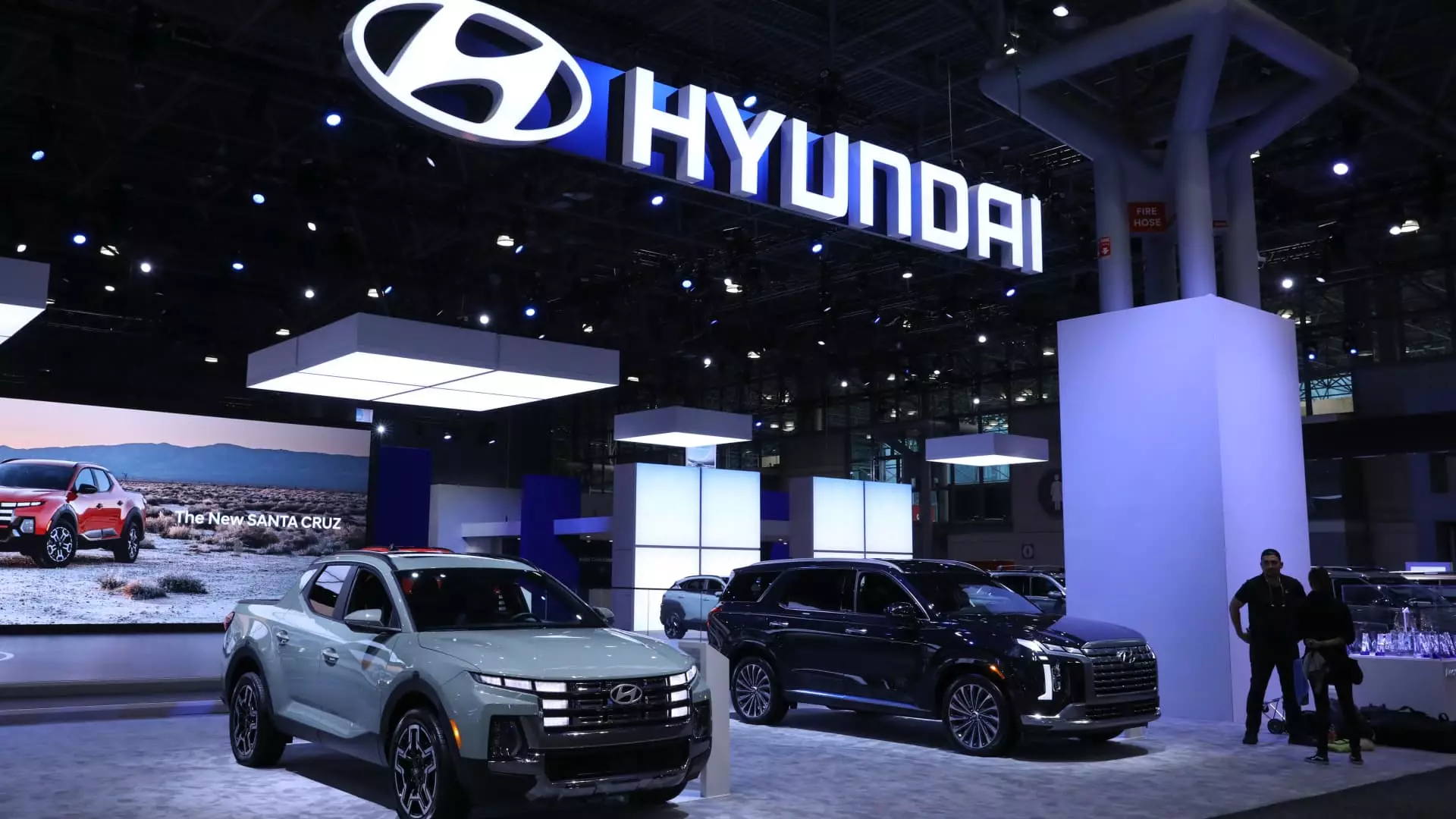The announcement of Hyundai’s monumental $20 billion investment in the United States isn’t just a significant business decision—it’s a potential game-changer for the American economy. With a $5 billion steel plant set to rise in Louisiana, the conglomerate aims not just to manufacture steel but to fortify America’s manufacturing prowess, particularly in the electrifying (pun intended) realm of electric vehicles (EVs). As global trade dynamics shift, Hyundai’s move represents a litmus test for American economic policies. The timing couldn’t be more crucial, as the firm plans to unveil this venture at the White House alongside high-profile figures, including President Donald Trump.
Hyundai’s strategy resonates deeply with current economic sentiments—nimbleness in rapidly changing market conditions. As international conglomerates scramble to pivot in response to increasing tariffs and trade tensions, many companies recognize that localization is not merely an option; it’s a necessity. For Hyundai, deepening its roots in American soil is a calculated risk that could yield significant rewards. The integration of next-generation steel for their U.S.-based auto plants positions the company not just as a player, but as a frontrunner in the competitive electric vehicle market.
Job Creation: A Double-Edged Sword?
Creating 1,500 jobs is certainly a compelling talking point, and it speaks to the potential revitalization of the American manufacturing landscape. Yet, one must cautiously approach claims surrounding job creation. This trend of onshoring does alleviate some labor concerns, but it begs the question: Are these jobs sustainable in the long term? With automation rapidly transforming factories, and companies increasingly leveraging AI and robotics, the narrative of job creation could quickly morph into one of job displacement. While Hyundai’s investment signals a positive trend for employment, it must be understood within a broader framework of workforce adaptation and retraining.
Moreover, the type of jobs created in the manufacturing sector often does not meet the educational requirements or wage expectations of many displaced workers. This disconnect highlights a crucial paradox: while Hyundai’s new plant may create jobs, the question remains whether these opportunities will benefit those who are most in need in today’s economy.
The Trade War Dilemma: A Necessary Evil?
The investment arrives amid heated discussions regarding trade imbalances, especially with South Korea perceived as enjoying a manufacturing edge over the United States. President Trump’s administration remains fiercely protective of American jobs, targeting what they consider unfair trade practices. Hyundai’s commitment to onshoring can be interpreted as a direct response to these political pressures. The discord over tariffs between South Korea and the U.S. underscores an ongoing struggle for balance in international trade relations. However, as sectors like tech and automotive evolve, doing business in a zero-sum game of tariffs could be more damaging than beneficial.
While tariffs are designed to protect American interests, the fallout could lead to retaliatory measures that complicate future business dealings. Hyundai’s investment, viewed through this lens, could be a strategic gamble to buffer against these uncertainties. By investing heavily in the U.S., Hyundai may position itself as an ally in the trade conversation rather than a foe—a proactive strategist instead of a reactive player.
Future Prospects: Is This Just the Beginning?
Hyundai’s diversification within the American manufacturing landscape hints at broader implications. The automotive giant already operates two substantial plants in Georgia and Alabama, and now potentially a third facility. With this trend, we might witness a renaissance of American manufacturing, driven primarily by international players recognizing the inherent stability of local production amidst global economic volatility. If successful, Hyundai’s gamble could prompt other corporations to rethink their global strategies, possibly paving the path for a more robust, locally-supported economy—a departure from pure globalization.
As Hyundai attempts to steer the narrative towards a more local-centric production model, their investment could trigger a shift in how global entities perceive their responsibilities toward the economies in which they operate. The unsettling challenge of balancing equity in trade relations, tariffs, and job creation continues to loom, but Hyundai’s bold move signals that change may very well be on the horizon.

